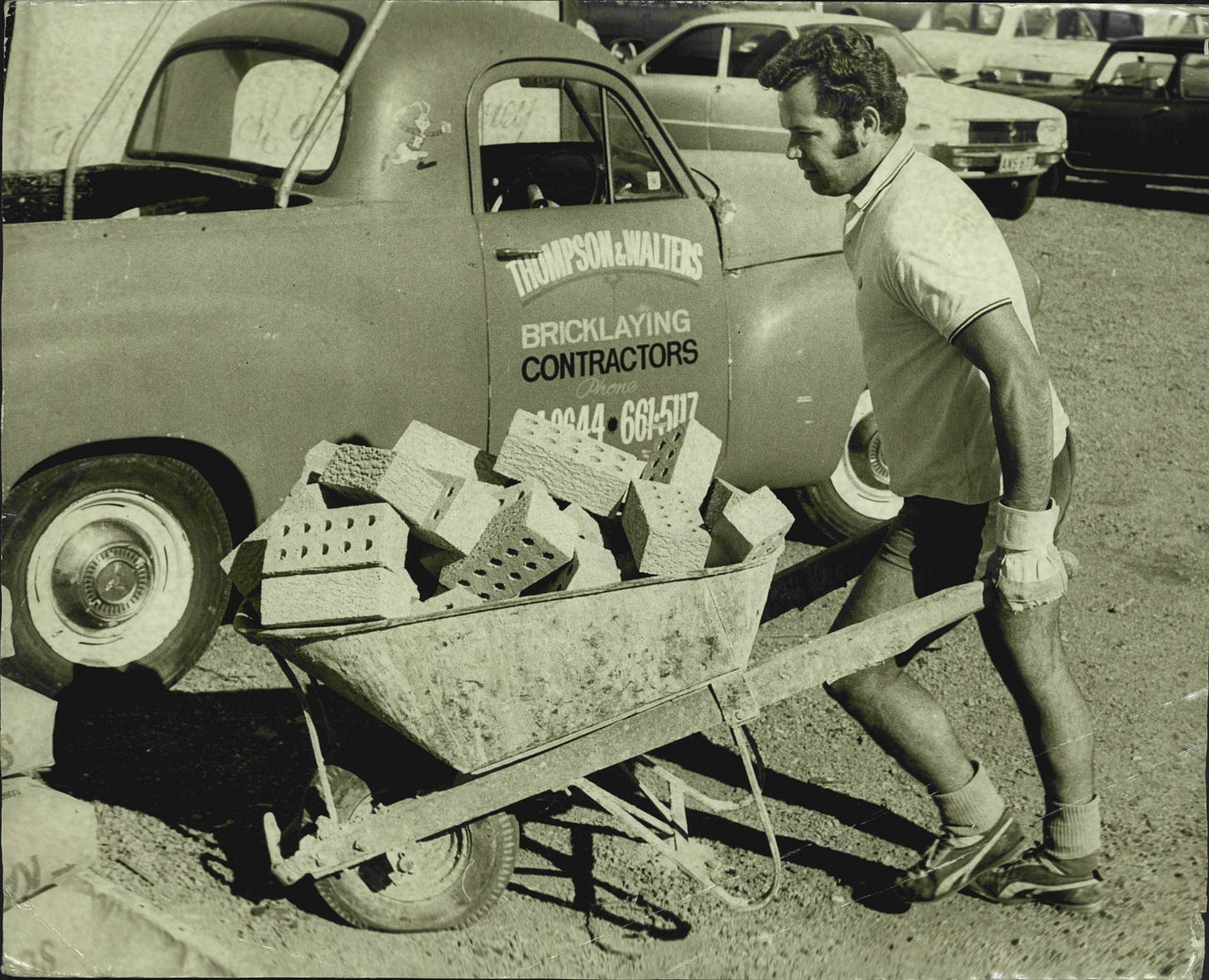I get asked, on occasion, what my creative process is like and how writing books is different from writing songs. I get asked this enough that I’ve arrived at a kind of pat answer. If you’ve been party to any number of book events or Q&A sessions of mine, you’ve likely heard my spiel. My feeling is that both things, songwriting and book-writing (or prose-writing) come from ostensibly the same place, the same area of my brain that seems driven to tell stories, but could not be more different from a process perspective. Like, they can feel galaxies apart.
I like to say that writing — writing books in particular — can sometimes feel like manual labor. It can feel exhausting and intimidating like hauling bricks from one end of your yard to another. You have a pile of bricks here; you know how large that pile of bricks is. You know you need to move it to the other end of your yard. You are painfully aware of how difficult and tedious this process will be and yet you must do it, wheelbarrow-load by wheelbarrow-load, until all of those bricks have been moved to their designated place on the other side of your yard. Satisfied with your achievement, you will be aggrieved to know that you must now move all those bricks to yet another part of the yard. This is called the second draft. There will be, perhaps, five or six or ten or fifteen of these drafts. Five or six or ten or fifteen piles of bricks moved.
This, to me, is what book-writing is like.
Metallica’s first bass player, Cliff Burton, died in Sweden in 1986 when the band’s tour bus skidded off the road. He’d been in his bunk, sleeping, when the accident happened. The bunk had belonged to guitarist Kirk Hammett until that evening, when Burton had won the bunk space from Hammett by drawing cards. Everyone else in the band survived the crash.
The band began auditioning new bass players almost immediately; by some accounts, the search began the day after Burton’s funeral. Over 50 musicians tried out, including a young Les Claypool; Jason Newsted, a member of a band that had opened for Metallica on previous tours, got the spot. Newsted’s first recording with the band was an EP of covers, on which he is credited as Master J Newkid. His first full-length recording was 1988’s …And Justice For All.
Songwriting, on the other hand, I like to say, most closely resembles unemployment. Picture it: you sit on your couch with a guitar in your hand, staring off into space, your fingers wandering the fretboard as you find your way to some satisfying chord progression; you begin singing along, finding a melody that suits the chords. You might do this for fifteen minutes; you might do it for an hour. Eventually, you might scribble something down or record it into your phone. Do this enough, and you’ve got song. It rarely feels like work. In fact, it mostly feels like shirking.
So, you might be wondering, if that’s your attitude, why in God’s name would you even do such a thing, write a novel?
That’s a very good question.
Everyone in the band in the band was pretty young when Burton died, in their early twenties. They came up in a scene — metal and thrash — where male vulnerability was taboo. Two years after Burton’s death, they were still grieving, but did not know how to process their grief. They hazed Newsted relentlessly. During the mixing of …And Justice For All, they deliberately mixed the bass parts 6 db lower than the mixing engineer had wanted. Listen to it now; it’s as if no one was playing bass on the record. The sound is almost entirely swallowed up by the sounds of the guitars. At the time, this was defended as a stylistic choice; now, even the members of Metallica have admitted it was an unconscious attempt to sublimate Newsted’s contribution to the record, to bury him in place of Cliff Burton.
I’m thinking of this now because I am currently looking at a very tall pile of bricks that I have just moved from one corner of my yard to another. I am loading up the wheelbarrow and I am moving the bricks, load by load. I am working on the second draft of my book.
I think about what Jon Klassen when I saw him speak at Literary Arts, here in Portland, a couple weeks ago. He said when he’s finished one of his books, it feels as if he’s just dashed across a tight rope. He’s breathless, he’s relieved. So when his editor asks for revisions, effectively asking him to step back out on to that rope, he’s terrified. “I just barely made it across that thing,” he’s thinking, “And now you want me to go back out there?”
But I think that’s what draws me back, over and over. The tightrope, the mountain, the pile of bricks. There’s a delicious friction in the undertaking.















And when can we expect some Metallica in the Other Peoples' Songs series??? :-)
This sounds like union organizing, or any organizing probably. The process is relatable even outside the creative sphere. It makes me respect the end result even more. Can’t wait to fly to Portland in November!